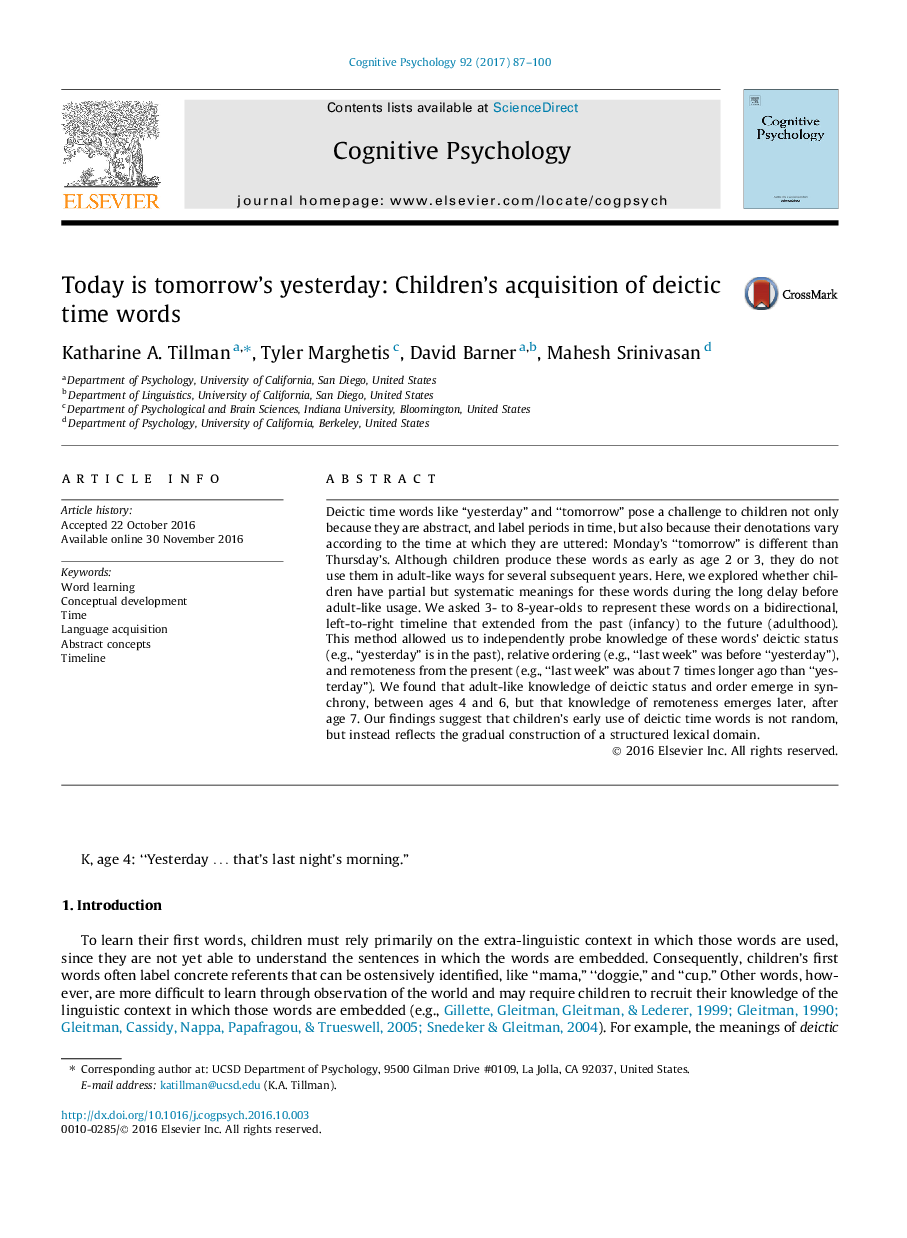| کد مقاله | کد نشریه | سال انتشار | مقاله انگلیسی | نسخه تمام متن |
|---|---|---|---|---|
| 5039722 | 1473372 | 2017 | 14 صفحه PDF | دانلود رایگان |
Deictic time words like “yesterday” and “tomorrow” pose a challenge to children not only because they are abstract, and label periods in time, but also because their denotations vary according to the time at which they are uttered: Monday's “tomorrow” is different than Thursday's. Although children produce these words as early as age 2 or 3, they do not use them in adult-like ways for several subsequent years. Here, we explored whether children have partial but systematic meanings for these words during the long delay before adult-like usage. We asked 3- to 8-year-olds to represent these words on a bidirectional, left-to-right timeline that extended from the past (infancy) to the future (adulthood). This method allowed us to independently probe knowledge of these words' deictic status (e.g., “yesterday” is in the past), relative ordering (e.g., “last week” was before “yesterday”), and remoteness from the present (e.g., “last week” was about 7 times longer ago than “yesterday”). We found that adult-like knowledge of deictic status and order emerge in synchrony, between ages 4 and 6, but that knowledge of remoteness emerges later, after age 7. Our findings suggest that children's early use of deictic time words is not random, but instead reflects the gradual construction of a structured lexical domain.
Journal: Cognitive Psychology - Volume 92, February 2017, Pages 87-100
